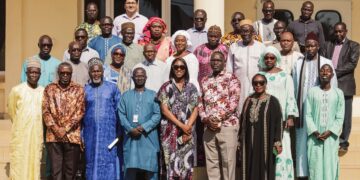The Joint Admissions and Matriculation Board (JAMB) has launched an investigation into 6,458 candidates suspected of engaging in technology-driven examination malpractice during the 2025 Unified Tertiary Matriculation Examination (UTME).
At the inauguration of a 23-member Special Committee on Examination Infractions in Abuja on Monday, JAMB Registrar, Prof. Ishaq Oloyede, described the development as one of the most alarming waves of exam fraud the board has encountered.
According to Oloyede, malpractices have shifted from traditional forms of cheating to sophisticated digital fraud. He cited cases of biometric identity swapping, falsification of albinism status, image blending, and attempts to manipulate Computer-Based Test (CBT) centre networks.
“Examination malpractice is something we must fight with every pinch of blood in our veins. If left unchecked, it will not only destroy our education system but also damage Nigeria’s credibility,” he warned.
While 141 “regular” malpractice cases** have already been referred to JAMB’s disciplinary committee, the newly inaugurated committee will focus on these “extraordinary infractions.”
The terms of reference include:
* Investigating all cases of advanced fraud such as image and finger blending, result falsification, and biometric manipulation.
* Reviewing JAMB’s registration and examination policies for loopholes.
* Recommending sanctions for guilty candidates, centres, or officials.
* Designing a **proactive framework** to prevent future high-tech examination fraud.
The committee, chaired by Dr. Jake Epele, has three weeks to submit its report. Oloyede explained that the short timeline was to ensure that innocent candidates are cleared before admissions close in four weeks.
In his response, Dr. Epele described the assignment as a “sacred duty,” stressing that malpractice undermines meritocracy and the future of Nigeria’s youth. “This is not just a committee job. It is a call to defend the integrity of our education system,” he said.
The panel comprises academics, security experts, civil society leaders, representatives of the Office of the National Security Adviser, DSS, Nigeria Police, and student bodies, including the National Association of Nigerian Students (NANS).
EduTimes Africa notes that this probe is part of JAMB’s wider efforts to safeguard the credibility of Nigeria’s admission process, as concerns over exam integrity continue to rise in the digital age.



















































































 EduTimes Africa, a product of Education Times Africa, is a magazine publication that aims to lend its support to close the yawning gap in Africa's educational development.
EduTimes Africa, a product of Education Times Africa, is a magazine publication that aims to lend its support to close the yawning gap in Africa's educational development.